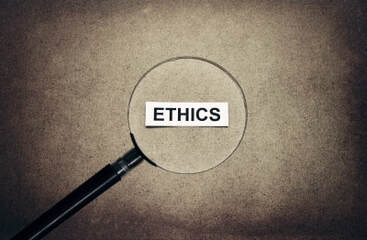 Image: winnond/freedigitalphotos.net
Image: winnond/freedigitalphotos.net An obnoxious traveler on a jetliner makes demands on a flight attendant, insisting that he deserves special attention because of he’s supposedly a close friend of the airline’s CEO. A woman across the aisle hears this and challenges the man to tell her the CEO’s nickname. When he tells her to mind her own business, the woman pulls out her wallet and shows him a photo from her wedding; it turns out the CEO is her father-in-law.
The morale of the story is clear: Your lies will find you out.
But the question it raises today is troubling: Does anyone care?
Over the past two years, I’ve started to write blogs about the behavior of White House spokeswoman Sarah Sanders—and Sean Spicer before her—only to abandon them out of concern they’d be taken as political screeds. Let me be clear, I’m no fan of President Trump, who has a passed-it-in-the-hallway relationship with truth. But as a critical link between the administration and the Fourth Estate, spokespersons like Sanders bear a tremendous responsibility—to the nation and to her profession—to uphold transparency, honesty and truth. Indeed, Sanders claims that’s what she desires as her legacy.
In my opinion, she’s failed at all of them. While hardly a revelation, the evidence in the newly released (and heavily redacted) Mueller report underscores the fact.
This should sweep away whatever shred of credibility Sanders might still have with the media. Indeed, some news outlets are calling for her to resign or be fired.
I think it’s 50-50, at best, that she’ll go. Why? Because in this administration, loyalty trumps credibility. In this administration, and among many of its supporters, truth is a “who,” not a “what.”
What does this say about the public relations profession?
Some of my colleagues will brush it off. “That’s her, not me.” Problem is, Sanders’s “slip of the tongue” behavior reflects on all of us.
As a member of the Public Relations Society of America, I embrace a Code of Ethics, which says in part: “We adhere to the highest standards of accuracy and truth in advancing the interests of those we represent and in communicating with the public.”
I firmly believe in the Code. It’s one of many reasons why I’m a frequent critic of the word “spin”—which is synonymous with deceit.
But here’s the thing: If PR professionals don’t call out unethical behavior, we’re no better than those who do it. If we don’t call out dishonesty and spin, we’re saying it’s actually okay.
That’s the moment we sacrifice our professional morals and credibility. That’s the moment we give up our place as champions of truth.
No more. I regret that I didn’t post this long ago. Call it (incorrectly) a political post if you want, but regardless of person, place or party, we must call out and condemn the practices of spinning, lying and misdirecting.
Does it matter? If the answer is “no,” God help us all.

 RSS Feed
RSS Feed
